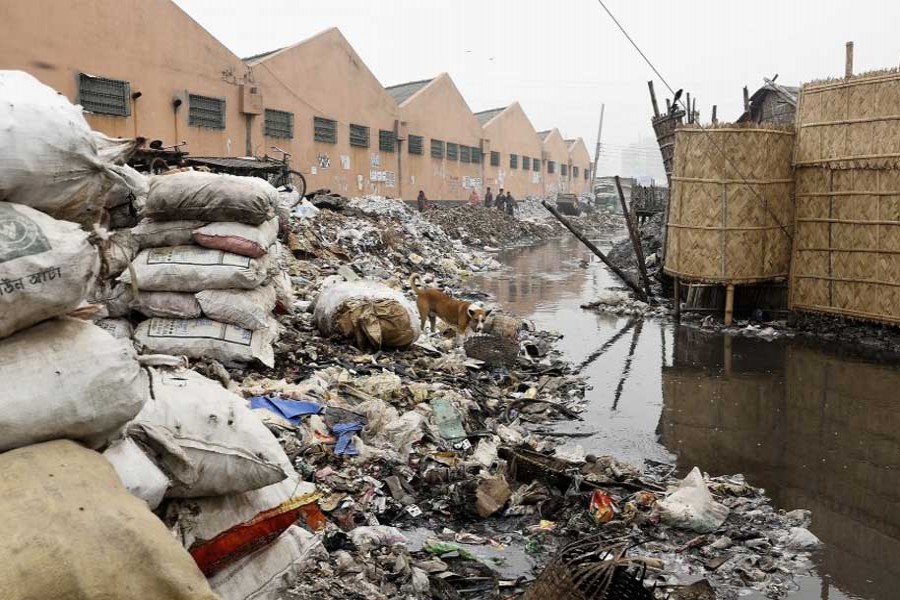The findings researchers revealed in the Lancet medical journal on pollution last week are far scarier than its threatening impact on human life many environmentalists worried about. No doubt a post-industrialisation phenomenon, pollution is going unabated while conversely making the planet a hub of ever-increasing productivity of all conceivable forms and varieties. And the toll it has been taking is frightening, to say the least-- as evident from the research.
The study conducted by the Lancet Commission on pollution and health, and authored by more than 40 international health and environmental experts, examined how pollution is linked to disease and death. Researchers estimated that pollution was behind nine million premature deaths across the globe in 2015. They mentioned in the report that pollution has a "severe and underreported" impact on our health, contributing in a major way to disease across the globe. The research found that air pollution was linked to 6.5 million deaths in 2015, while water pollution was behind 1.8 million deaths. Workplace pollution was linked to nearly one million deaths.
Pollution, however, isn't likely the official cause of death in many of these cases, but is a contributing factor leading to those deaths -- for example, heart disease and cancer are pollution-linked diseases, and those were responsible for three times the number of deaths from AIDS, tuberculosis and malaria combined.
Researchers found that 92 of pollution-related deaths occur in low- to middle-income countries. Poor people are disproportionately affected by pollution-related diseases. As many as one in four deaths can be linked to pollution in growing and rapidly industrialising countries like China, India, Pakistan, Bangladesh, Madagascar and Kenya, according to the report.
Almost half of the total toll came from just two countries - India and China, the researchers reported. "Pollution and related diseases most often affect the world's poor and powerless, and victims are often the vulnerable and the voiceless," said co-author Karti Sandilya of Pure Earth, an anti-pollution NGO, adding, "As a result, pollution threatens fundamental human rights, such as the right to life, health, wellbeing, safe work, as well as protections of children and the most vulnerable."
What one can draw from the report is that it is the developing and poor countries that are worst-hit. With global welfare losses of about $4.6 trillion a year, the economic cost of pollution-related deaths and disease is also concentrated in the developing world, the report says adding, "low-income countries pay 8.3 per cent of their gross national income to pollution-related death and disease, while high-income countries pay 4.5 per cent."
While speaking of pollution, we mostly think of outdoor pollution, although it is indoor pollution as well in many poor countries where the impact is no less severe. Along with it come water pollution and workplace pollution. It need not be stressed that in both our urban and rural settings, it is not just ignorance but quite often deliberate acts that are causing pollution of all sorts.
The fact that the report mentions Bangladesh as one of the places where one in four deaths is attributed to pollution is a cause for serious concern. In this context, it may not be out of place to mention that coupled with the aforementioned areas of pollution, one major contributing element (that the researchers did not take into account) is contaminated food that people eat and the adverse effects it causes. There is a definite link between contamination of food stuff and environmental pollution.
Experts do believe that pollution, to a large extent, can be contained through strict implementation of rules. We do have rules, and what is absent is enforcement. There are plenty of examples to show that rules in most cases aren't meant for implementation. One glaring example that has been making top news stories in the media is the ruthless pollution of the rivers and water bodies adjoining the capital Dhaka. The leather hub at Hazaribagh got shifted to Savar to save the Buriganga river but ironically, it is now the Dhaleshwary river that is now bearing the brunt due to the discharge of extremely corrosive waste and chemicals of the leather plants-- although the rule says discharge must be treated in the CETP (central effluent plant). This is just one among a thousand cases of blatant disrespect for rules and regulations all over the country.
The researchers in their report have said that pollution is a 'winnable battle.' It leaves barely any scope for disagreeing with the observation that one key weapon to fight pollution is enforcement of rule. And it's not the responsibility of a single agency but of many. One can hope to see it succeed only if it is backed by political will.


